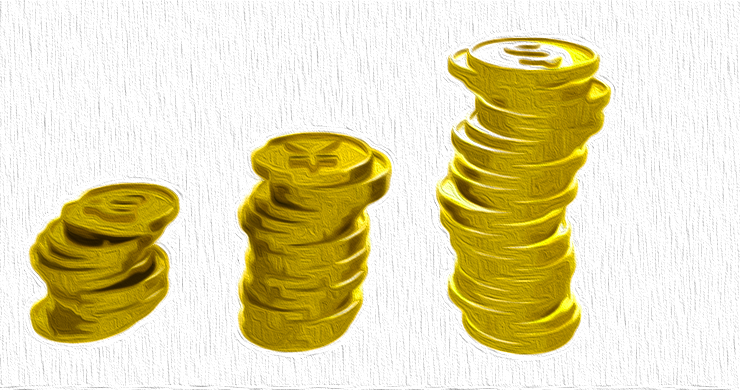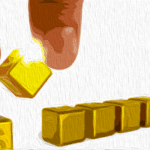
Introduction
Argentina's Foreign Minister, Diana Mondino, has announced that financial contracts in the country can now be denominated in Bitcoin. This move is seen as a step towards fulfilling President Javier Milei's promises, including dollarization of the economy and abolition of the central bank. The decision allows residents to settle contracts with any medium of exchange they choose, not limited to the peso.
Pressure Mounts on Milei
Since his inauguration, President Milei has faced mounting pressure from supporters to honor his pledge of dollarizing the economy. Influential figures like Steve Hanke from Johns Hopkins University have urged him to fulfill this promise. However, the president has chosen to devalue the peso instead, leading to criticism from his supporters.
Return of the Barter Trade System
Mondino's announcement signifies a shift away from considering the peso as the only legal medium of exchange in Argentina. The government now recognizes that financial contracts can be denominated in various currencies, including cryptocurrencies like Bitcoin. Additionally, other commodities such as steel or milk can also be used for settlement.
The Foreign Minister emphasized that debtors are obligated to deliver the designated currency, regardless of its legal tender status in the Republic. This move opens up possibilities for alternative forms of payment and challenges the traditional monetary system.
Other Measures by the Milei Government
Alongside allowing financial contracts to be denominated in Bitcoin, the Milei government has implemented several other measures. These include cutting fuel and transport subsidies, reducing the number of government ministries, and modernizing labor law. These changes aim to bring about economic reforms and increase efficiency in various sectors.
Reactions and Ridicule
Some social media users have ridiculed Mondino's announcement, comparing it to a return to a barter trade system. Critics argue that the inclusion of various commodities as mediums of exchange could lead to a chaotic and impractical economic environment.
However, supporters of the government's decision view it as a progressive step towards embracing new technologies and challenging the traditional financial system. They believe that allowing financial contracts to be denominated in Bitcoin will attract investment and stimulate economic growth.
Conclusion
Argentina's decision to allow financial contracts to be denominated in Bitcoin and other mediums of exchange reflects President Milei's determination to fulfill his campaign promises. This move challenges the traditional monetary system and opens up opportunities for alternative forms of payment. While there are critics who ridicule the decision, supporters see it as a step towards embracing technological advancements and driving economic growth. The impact of this decision on Argentina's economy and its position in the global financial landscape remains to be seen.
Frequently Asked Questions
Can I put gold in my IRA?
The answer is yes! You can add gold into your retirement plan. Because it doesn’t lose value over the years, gold makes a good investment. It also protects you against inflation. It doesn't come with taxes.
Before you invest in gold, make sure to understand its differences from other investments. You can't buy shares in companies that make gold unlike bonds or stocks. Nor can you sell them.
Instead, convert your gold to money. This means that it will be necessary to dispose of the gold. You cannot keep it.
This makes gold different from other investments. You can always sell other investments later. With gold, this isn't true.
You can't even use your gold as collateral to get loans. To cover a mortgage, you may need to give up some gold.
What does all this mean? Your gold can't be kept forever. It will eventually have to be converted into cash.
However, there is no need to panic about it. To open an IRA, all you need is to create one. Then you can invest your money in gold.
Are gold IRAs a good investment?
You can invest in gold by purchasing shares in companies that mine it. You should buy shares in these companies to make money from investing in gold and other precious metals such as silver.
However, there are two drawbacks to owning shares directly:
You can lose money if you hold onto your stock too long. Stocks will fall faster than the underlying asset (like a gold mine) when they drop. This could mean that you lose money rather than making it.
Second, you may miss out on potential profits if you wait until the market recovers before selling. It is possible to wait until the market recovers before selling your gold.
Physical gold can be beneficial if you prefer to keep investments separate from your finances. An IRA in gold can diversify your portfolio and protect you against inflation.
You can learn more about gold investing by visiting our website.
How does an IRA for gold and/or silver work?
A gold and silver IRA allows you to invest in precious metals, such as gold and silver, without paying taxes on any gains. They are a good investment option for those who wish to diversify their portfolios.
If you're over 59 1/2, you don't have to pay income taxes on interest earned through these accounts. You also do not have to pay capital gains tax on any appreciation in the account's value. This account has a limit on how much you can put in. The minimum amount permitted is $10,000 Under 59 1/2 years old, you can't make any investments. The maximum annual contribution is $5,500.
Your beneficiaries could receive less if you die before your retirement. Your estate should contain sufficient assets to cover your account's remaining balance after paying any other expenses.
While some banks offer gold and/or silver IRA options to their customers, others require them to open a regular brokerage bank account that allows you to purchase certificates or shares.
What type of IRA is used for precious metals?
A Individual Retirement Account (IRA), is an investment vehicle offered by most financial institutions and employers. An IRA lets you contribute money that will grow tax-deferred to the time it is withdrawn.
An IRA lets you save taxes and pay them off later. This means you can save money and pay taxes later on the money that you have deposited to your retirement account.
An IRA is a tax-free way to make contributions and earn income until you withdraw the funds. There are penalties for early withdrawal if you do.
You can also contribute to your IRA beyond age 50 without penalty. If you decide to withdraw your IRA from retirement, you will owe income taxes as well as a 10% federal penalty.
A 5% IRS penalty is applicable to withdrawals made before the age of 59 1/2. There is a 3.4% penalty for withdrawals between the ages 70 1/2 and 59 1/2.
A 6.2% IRS penalty applies to withdrawals exceeding $10,000 per annum.
Statistics
- If you accidentally make an improper transaction, the IRS will disallow it and count it as a withdrawal so that you would owe income tax on the item's value and, if you are younger than 59 ½, an additional 10% early withdrawal penalty. (forbes.com)
- Silver must be 99.9% pure • (forbes.com)
- Depending on your financial situation, most experts recommend you invest no more than 5% to 10% of your retirement funds in precious metals. (forbes.com)
- The IRS also allows American Eagle coins, even though they do not meet gold's 99.5% purity standard. (forbes.com)
External Links
en.wikipedia.org
wsj.com
investopedia.com
takemetothesite.com
How To
How to Decide if a Gold IRA ‘Is Right For You'
Individual Retirement Account (IRA) is the most popular type. Individual Retirement Accounts (IRAs) are available through financial planners, banks, mutual funds and employers. The IRS allows individuals up to $5,000 in annual contributions without tax consequences. You can contribute this amount to any IRA regardless of your age. You can only put a certain amount into an IRA, but there are restrictions. For example, you cannot contribute to a Roth IRA unless you're at least 59 1/2 years old. Contributions must be made by those under 50 years old. Some people may also be eligible for matching contributions if they work for their employer.
There are two main types: Roth and traditional IRAs. The traditional IRA allows you the opportunity to invest in stocks and bonds as well as other investments. However, the Roth IRA only allows you to invest after-tax dollars. Roth IRA contributions don't get taxed as soon as they are made. However, withdrawals from a Roth IRA will be taxed again. Some people prefer to combine these two accounts. Each type of IRA comes with its own pros and cons. Before you decide which type of IRA is right for you, what are the pros and cons? Here are three things to keep in mind:
Traditional IRA Pros:
- Each company has its own contribution options
- Employer match possible
- More than $5,000 in savings per person
- Tax-deferred growth until withdrawal
- Limitations may apply based on income levels
- The maximum annual contribution limit is $5.500 (or $6.500 if married filing jointly).
- The minimum investment required is $1,000
- After the age of 70 1/2, mandatory distributions must be taken.
- You must be at the least five years of age to open an IRA
- You cannot transfer assets between IRAs
Roth IRA pros
- Contributions do not attract taxes
- Earnings grow without paying taxes
- Minimum distribution not required
- Investment options are limited to stocks, bonds, and mutual funds
- There is no maximum contribution limit
- There are no limitations on the ability to transfer assets between IRAs
- An IRA can only be opened by those 55 and older
Considering opening a new IRA, it's essential to know that not all companies offer the same IRAs. For instance, some companies offer a choice between a traditional or a Roth IRA. Some will let you combine them. There are different requirements for different types. Roth IRAs don't have a minimum capital requirement. Traditional IRAs only require a $1,000 minimum investment.
The bottom line
When you are choosing an IRA, it is crucial to consider whether you will pay taxes now or in the future. If you plan to retire in the next ten years, a traditional IRA might be the best choice. A Roth IRA may be a better choice for you. Either way, it's always a good idea to consult a professional about your retirement plans. Someone who understands the market will be able to recommend the best options.
—————————————————————————————————————————————————————————————-
Based on [POSTTITLE]
by [POSTAUTHOR]

















